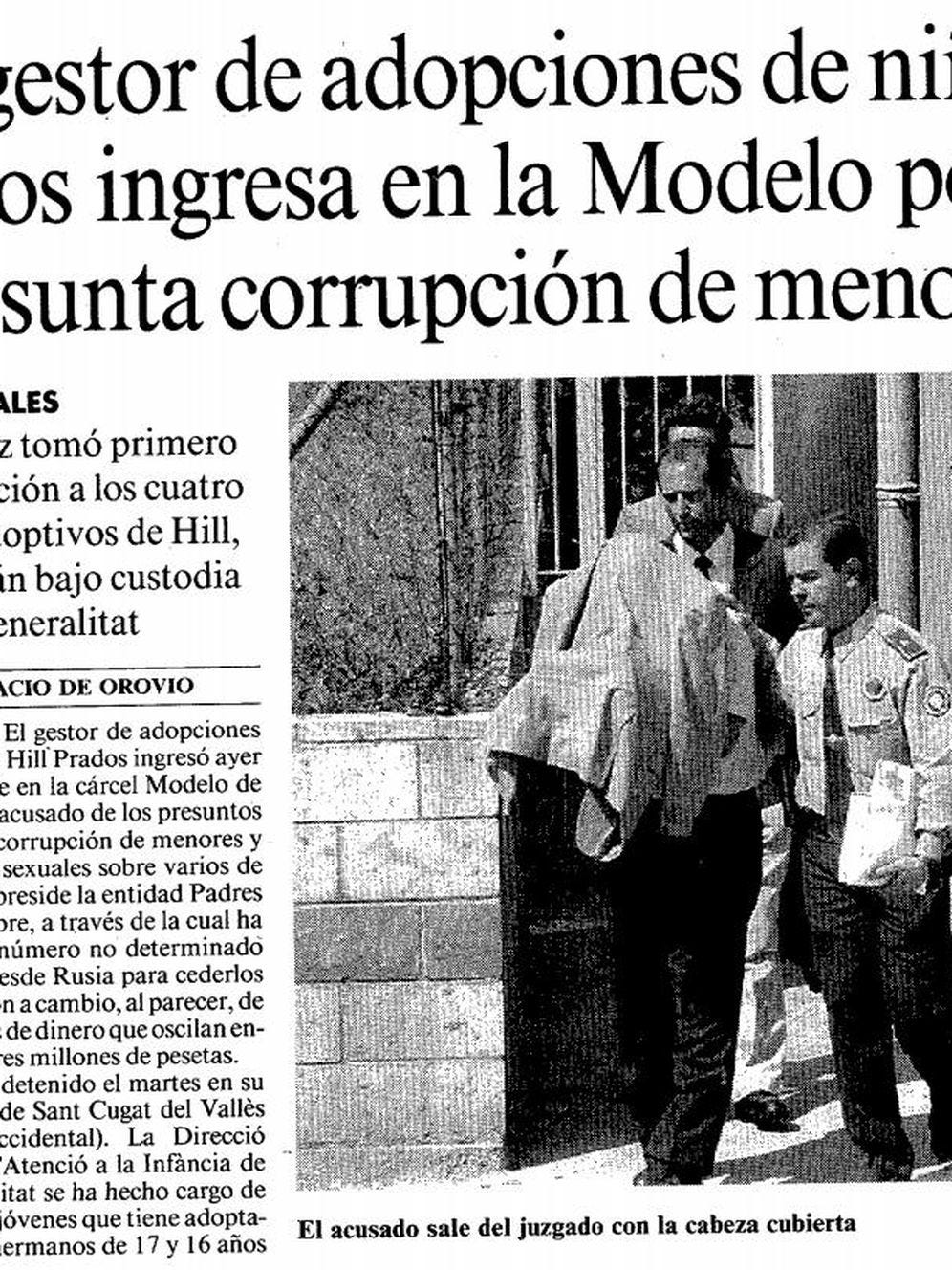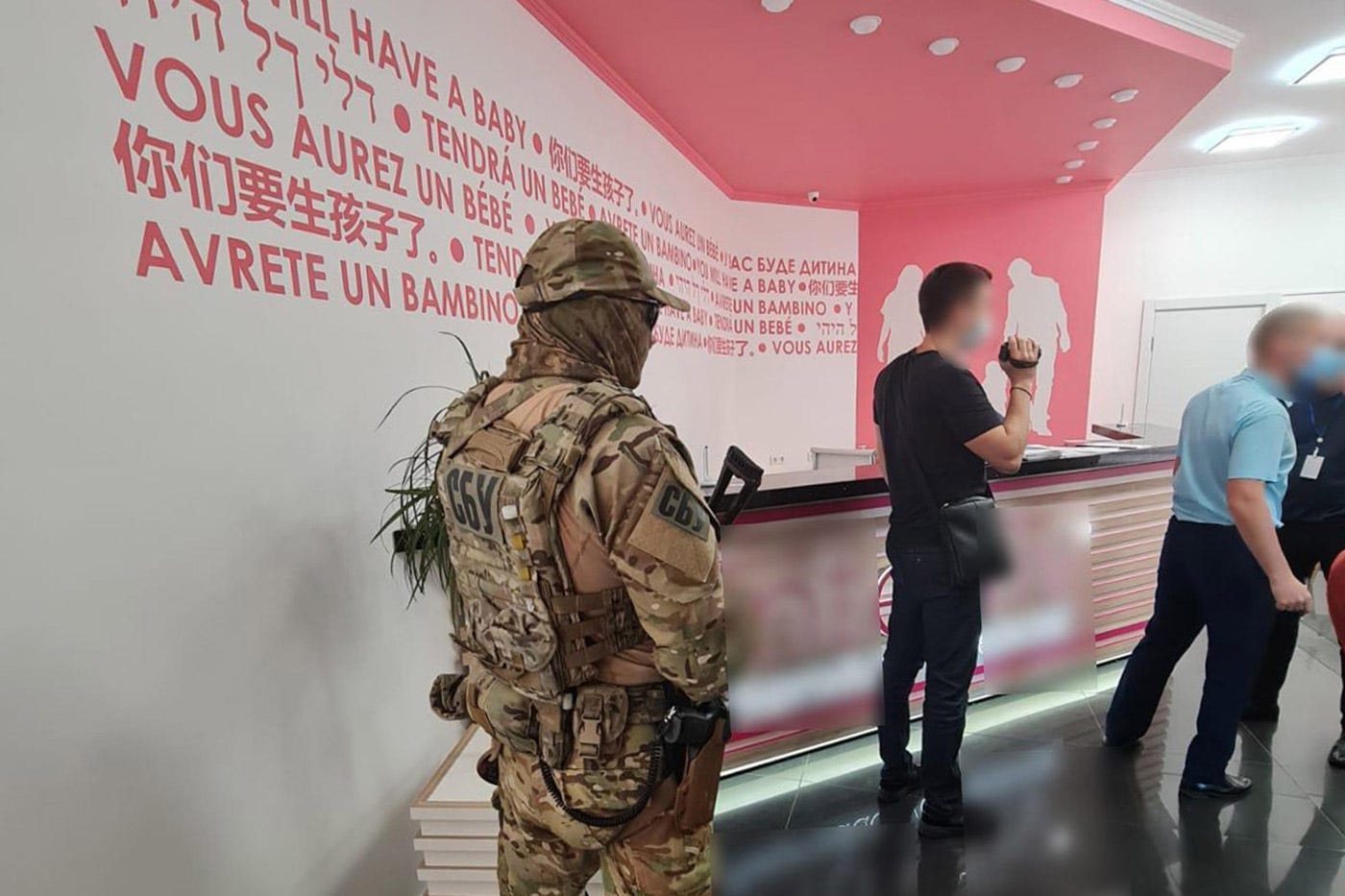A surrogacy empire owned by a convicted pedophile has come under investigation for arranging fictitious marriages, falsifying documents to smuggle babies out of Ukraine, and trading children for profit, according to a Paris-based consortium of researchers.
The Organized Crime and Corruption Reporting Project (OCCRP) has released an investigation which links Barcelona-based surrogacy company Subrogalia to a network of corporations controlled by two men, one of whom sexually abused the other as a child and has an extensive history of child rape.
José María Hill Prados, now 62, was 45 years old when he first met Didac Giménez Sánchez at the Casal Dels Infants del Raval center for minors in Barcelona. Prados exposed 12-year-old Sánchez to pornographic films in order to groom him at his home in Cervelló, Spain, where he also sexually assaulted the boy.
In 2007, Prados was sentenced to eight years in prison for sexually abusing both Sánchez and his sister on charges that included raping the children, and for creating illicit pornography of the acts he subjected them to.
However, the sentence was anonymized, with Prados’ identity being obscured as ‘Carlos Jesús’ in court records and Sánchez being identified as ‘Baltasar.’ The following year, Sánchez desperately recanted his allegations, claiming he was pressured into making the accusations. But the judge disagreed, having already heard the boy’s testimony presented to the court, and found there was sufficient evidence to sustain the conviction. Prados would go on to serve his full prison sentence.
This was not the first instance of child sexual abuse committed by Prados. In 1996, he was investigated by a Barcelona court for the alleged crime of corruption of minors and several more sexual assaults of which his four adopted children, aged between 12 and 17, were reported to be victims. Prados, then 36, was the founder of a Russian children’s foster organization called Padres para Siempre (Parents forever), and the details of the case were sealed from the public.
Defense lawyer Jordi Rojo used Prados’ children, those he abused, to argue against his imprisonment, and told the court that his client “loves his children very much and is very concerned about what could happen to them now.” The four minors, two brothers aged 17 and 16 and another two boys aged 13 and 12, had been taken into the care of the Generalitat’s Children’s Department during the court proceedings.
On the day the children were expected to testify in court regarding the allegations, they suddenly backed down and denied that they had ever been sexually abused. As the children had not yet made a statement on the record, Prados could not be convicted.
Soon after Prados was released from prison for his 2007 conviction, he legally changed his name to Diego, and he and his former victim became business partners.

In 2015, Prados and Sánchez set up a surrogacy company called Subrogalia based in Spain, according to corporate records. The company, one of over a dozen currently owned by the two men, was quickly mired in controversy and allegations of child trafficking.
The probe into Prados’ extensive criminal empire found that Subrogalia had been investigated in at least two countries out of the nine where it now operates. Alleged crimes include selling and trafficking of babies, in addition to providing clients with infants that were not biologically related to them.
In 2016, the year after the Spanish franchise of Subrogalia was founded, two gay couples sued the company for failing to deliver them sons as promised. A judge ordered the company to pay €88,000 (approx. $95,000 USD) to the claimants for “serious and grave” breaches of contract.
Subrogalia has operations in as many as nine countries, including Russia, Greece, and, briefly, Mexico. But the primary source of the company’s revenue can be traced to its clinics in Ukraine. The OCCRP investigation cites a former manager who said that, before the war, women in Ukraine bore approximately 100 babies annually for paying parents, each earning the company around €8,000 (approx. $8,600 USD) in profit.

“Dídac [Sánchez] and José María [Prados] share an office. Prados calls himself Diego in the company, perhaps because it is the only name that appears in the Mercantile Registry. They arrive early, go to eat together and leave around eight in the evening. It is difficult to see them separated, they are like the same person”, a former Subrogalia employee told El Confidencial.
“The entire office knows the reality of the company: they know that Diego is not Diego, but José María, the Raval pedophile, and that Dídac is Diego, his victim, who only counts outside the gates. He is the pretty face of Hill Prados for the press, because he knows that his children are too contaminated to come to light,” the source continued, adding that there is frequently an “unjustified presence of minors” at the company.
Whistleblowers at Subrogalia have told the press that Sánchez serves as the face of the company, despite being regarded as a “nobody at a business level.” Prados, it is said, is the “shadow boss” of the scheme. Prados’ adopted sons also similarly assist in business operations. Alan Hill Prados has worked as a surrogacy manager at Subrogalia, and Andrei, who is originally from Russia, acts as an intermediary in dealings between the clinic in his home country and the Barcelona location.
Before the escalation of the conflict in Ukraine, the Eastern European nation earned a reputation as an international hub for the sale of babies through surrogacy contracts. The industry has been known to target women who are struggling financially, offering them payments of approximately $11,000 for a healthy baby – more than three times the average yearly salary in Ukraine.

In order to distance the company from the litigation, Subrogalia Ukraine rebranded as Eurosurrogacy in 2017. Concurrently, Subrogalia Spain was renamed to Gestlife.
“More than 45% of our parents are single men, gay couples, or single gay men, who, at a certain point in their lives, have received the call of parenthood. Surrogacy for gay couples, or for single men, is the best way to achieve parenthood, due to the practical impossibility of a successful international adoption process. The number of surrogacy cases in Spain has, in the last two years, surpassed the number of international adoptions,” reads Gestlife’s website on a page aimed at “LGBT” customers.
Sánchez was also named as the founder of his own Ukrainian IVF clinic in 2017 named InterFiv. In 2021, one of Prados’ sons took over ownership, and that same year the clinic was raided by law enforcement for allegedly arranging fictitious marriages and falsifying documents in order to smuggle babies out of the country.
Prados and Sánchez were also business partners with one of the largest IVF clinic chains in the world, the BioTexCom Clinic in Kiev, which has implanted embryos for about 95 percent of Eurosurrogacy’s Spanish clients.
In 2018, Sergii Antonov, a Kiev-based lawyer specializing in the medical field, told the press that of the estimated 2,000 infants born through surrogacy in Ukraine every year, nearly half were through BioTexCom.
That same year, Ukrainian authorities opened an investigation into the company. Employees were accused of being involved in a “criminal group” that used surrogacy programs as a cover for trafficking children. Prosecutors allege they helped “foreign citizens to make illegal deals, involving minors” that amounted to “trading children for a financial reward.”

Eurosurrogacy was implicated in the crimes and has had its bank accounts frozen as the probe into their illegal activities continues.
“It is absolutely appalling that a convicted sex offender should be allowed to operate in such a sensitive area as gestational surrogacy, which is based on exploitation of women living in poverty,” Nina Potarska, Ukrainian head of the Women’s International League for Peace and Freedom, told the OCCRP. “Given the background of such exploitation, it is not surprising that there are allegations of malpractice, such as trafficking of babies.”
BioTexCom told the press that its management was unaware of Prados’ criminal record when they went into business together. This claim is not entirely without merit: in addition to his surrogacy network, Prados is also the figure behind a shadowy corporation dedicated to burying and erasing incriminating information from the internet.
“We erase your past,” boasts Eliminalia, a business led by the convicted pedophile, which has netted millions in revenue over the past decade for restoring the online reputation of hundreds of clients who have been convicted and investigated in 54 countries for corruption, money laundering, sexual abuse and drug trafficking.
Last month, over one hundred investigators with the OCCRP analyzed more than 50,000 leaked internal documents related to Eliminalia’s fraudulent business model, including contracts, identification, content requested to be deleted and fees paid by nearly 1,500 users. They found shocking connections to government corruption in Latin America. Among Prados’ clients: the former governor of the Mexican state of Veracruz, Javier Duarte; relatives of Venezuelan Chavista leaders; and doctors linked to Chile’s DINA, the repressive arm of the dictatorship of General Augusto Pinochet. Other customers who requested the removal of their background have been accused of laundering money for the Mexican drug cartel Los Zetas.
Altogether, Prados profited from service fees paid by white-collar criminals and businessmen, but also drug traffickers, child abusers, and crooked politicians. One contract from 2018, the highest single-paying client, amounted to $427,584.
Eliminalia utilizes a network of 600 websites to manipulate search engine algorithms so that falsified articles will appear most prominently while the clients’ undesired information becomes buried. Prados’ Florida company Maidan Holding produces positive results through sites designed to appear authentic. Le Monde France, London New Times, and CNNEWS Today are some of the cover outlets that have hosted news articles about the company’s customers.
Currently Eliminalia is said to operate in a dozen countries, with Italy, Switzerland, Turkey and the US among them. While it was originally based in Kiev, the Russian invasion forced the company to relocate, and EL PAÍS reports that its new location can be found in Georgia. Like the rebranding undertaken by Prados’ surrogacy clinics, Eliminalia is now recorded as Idata Protection S. L., according to business register records.
Police have stated that investigations into the child trafficking activities led by Prados and Sánchez are still underway, but a source within Ukraine’s security service believes they have evidence to support the charges. A case is expected to be brought against InterFiv once Ukraine’s legal system is once again fully operational, though it is unclear at this time when that may be possible.
While the investigation continues into Prados and Sánchez, months ago a representative of Subrogalia in Russia was sentenced to four and a half years in prison for human trafficking after he was found to have sold a child abandoned by a Spanish couple to another client.








thank you. your coverage completely rocks. it's what we instinctively already know is going on. here's just the evidence... but will anything stick? and can anything stop this juggernaut of humanity hating male sex freaks who are so funded, so organised, so entrenched and so determined to do as much harm as possible.
I was anti surrogacy already but now I am absolutely horrified. Thankyou for doing so much investigation this is very important work.